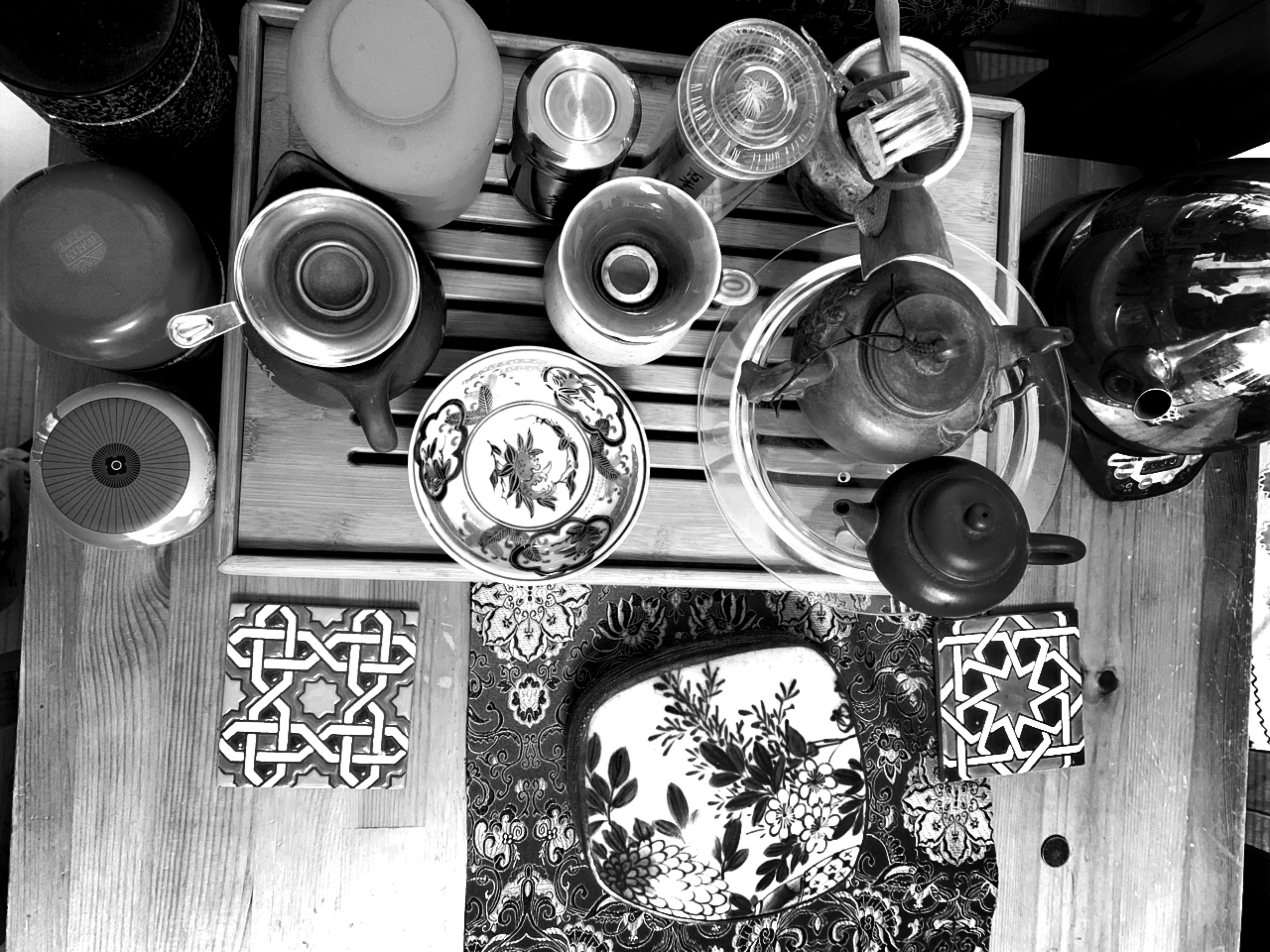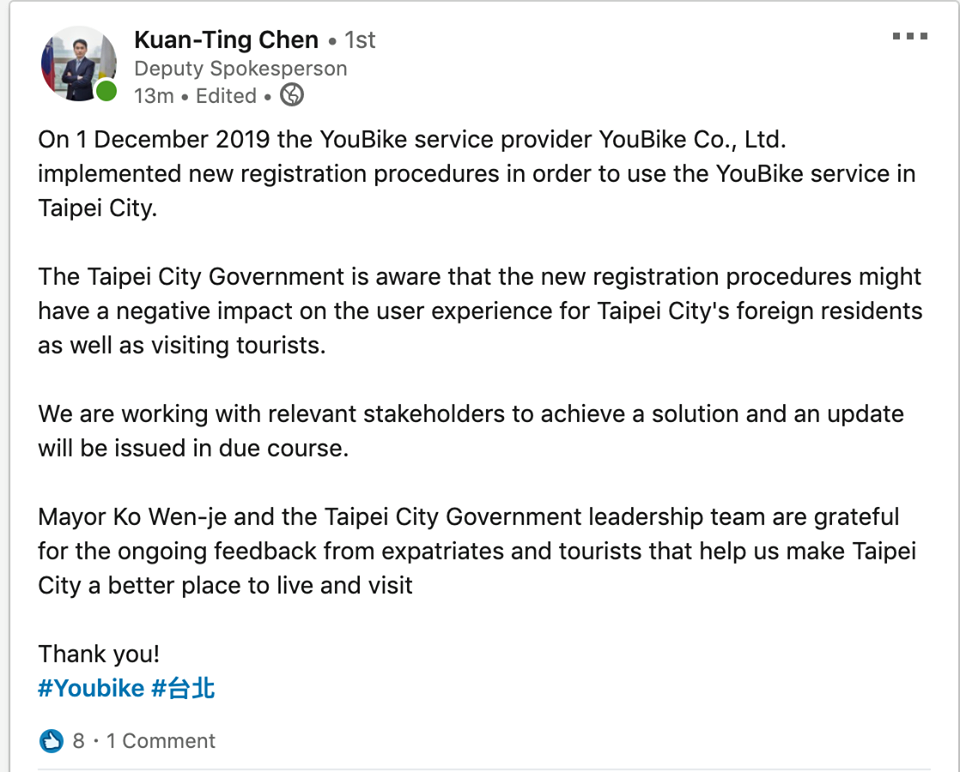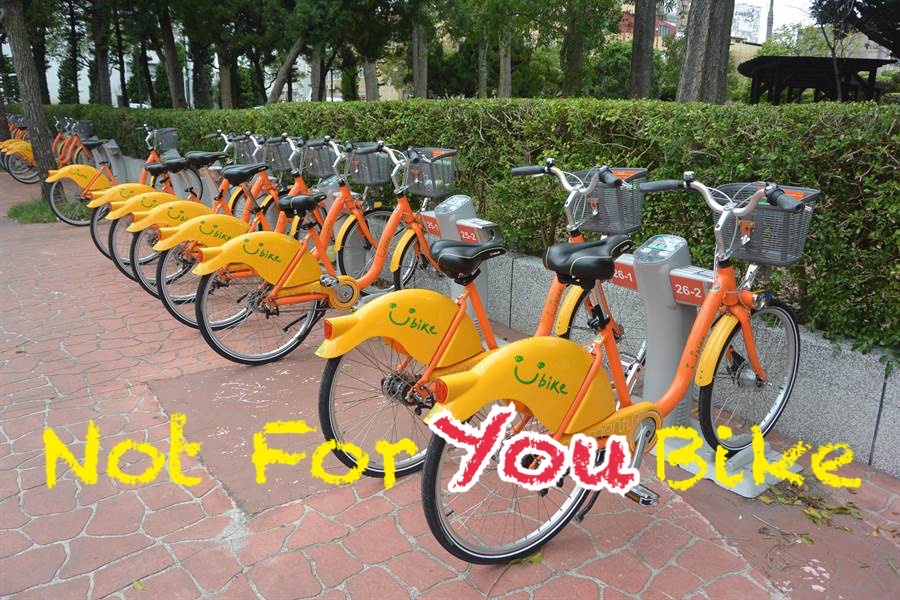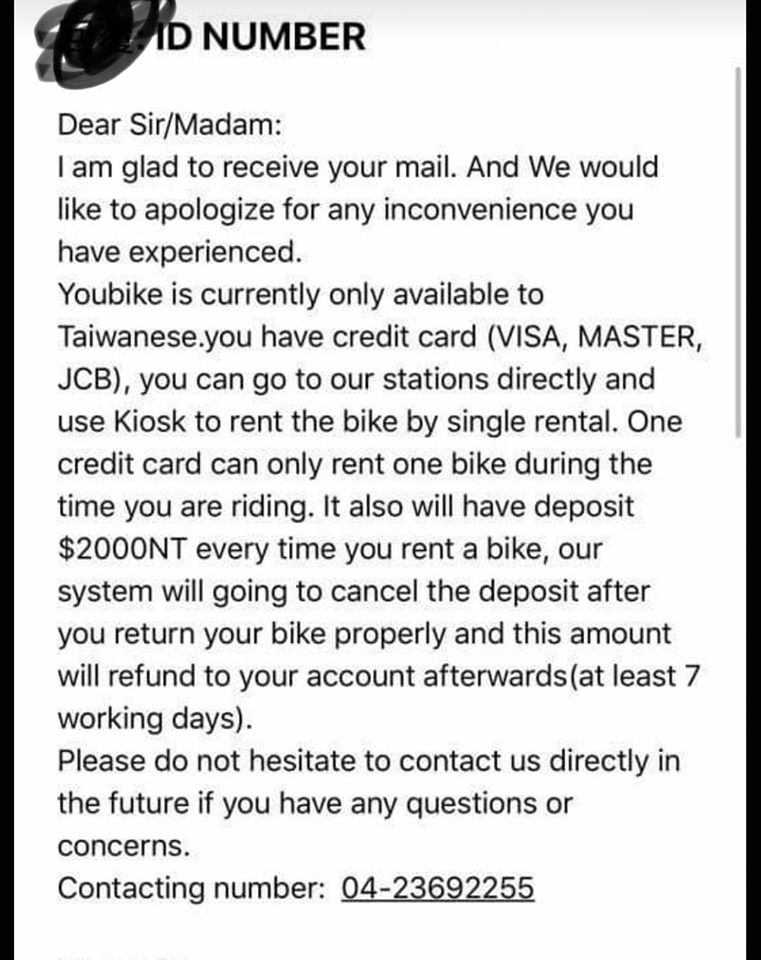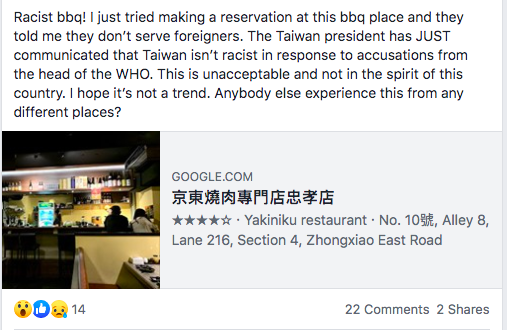
Updated (4/19/2020):
Friends are reporting that the Zhongxiao East Road branch of 東京燒肉專門 is not allowing foreigners to enter unless they show a passport with entry dates. Here's a link to their discriminatory policy. They say they don't discriminate, but it's stated that only foreigners need to show this, which...is discrimination.
It's also impossible - what on Earth is in my passport that I could show them, for example? How do they know who is and isn't a citizen based on looks (or even language ability) alone?
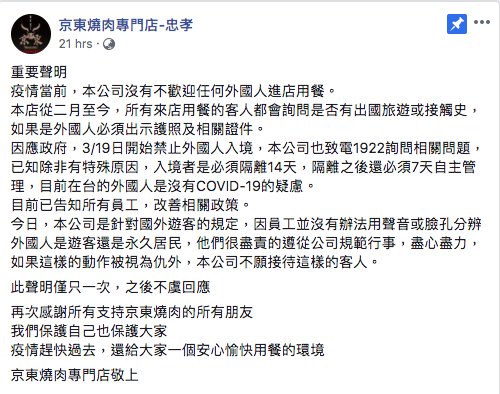
Discrimination against foreigners in Taiwan is still going on - and this time around, there are more places that people are reporting as not serving foreigners at all, often citing a bogus "police document" or "government policy".
Something needs to be done about this - it's not just the bad logic. It's not just the discrimination. It's that these businesses are lying about government policy and "police documents" to justify discrimination, which is disinformation and harmful to public health.
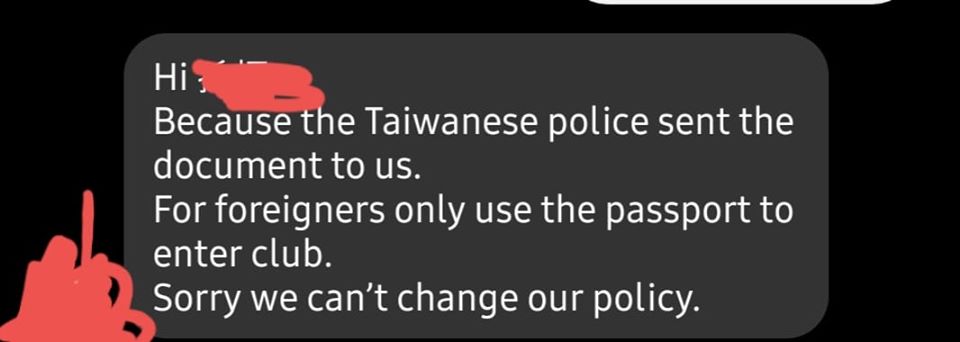 |
| This club isn't named, but it's just one example of using "the police" as an excuse to discriminate |
You can report discrimination in Taipei City to Taipei Urbanism, which will follow up with the business in question as well as pass the information on to the government. You can also send a petition directly to Taipei City government. Outside of Taipei, there are surely petition systems for other municipalities. You can also email the Executive Yuan - if they receive enough emails, perhaps they will make a statement about this trend.
If you're wondering if I'm wrong about this and it really is some sort of policy, please remember that Mayor Ko specifically asked businesses not to do this in a tweet in late March. Furthermore, I asked a friend who works for the city government, who asked colleagues in the relevant departments, all of whom said it is not a "government policy", at least in Taipei.
There are also some discriminatory businesses in Taichung which are named in the comments.
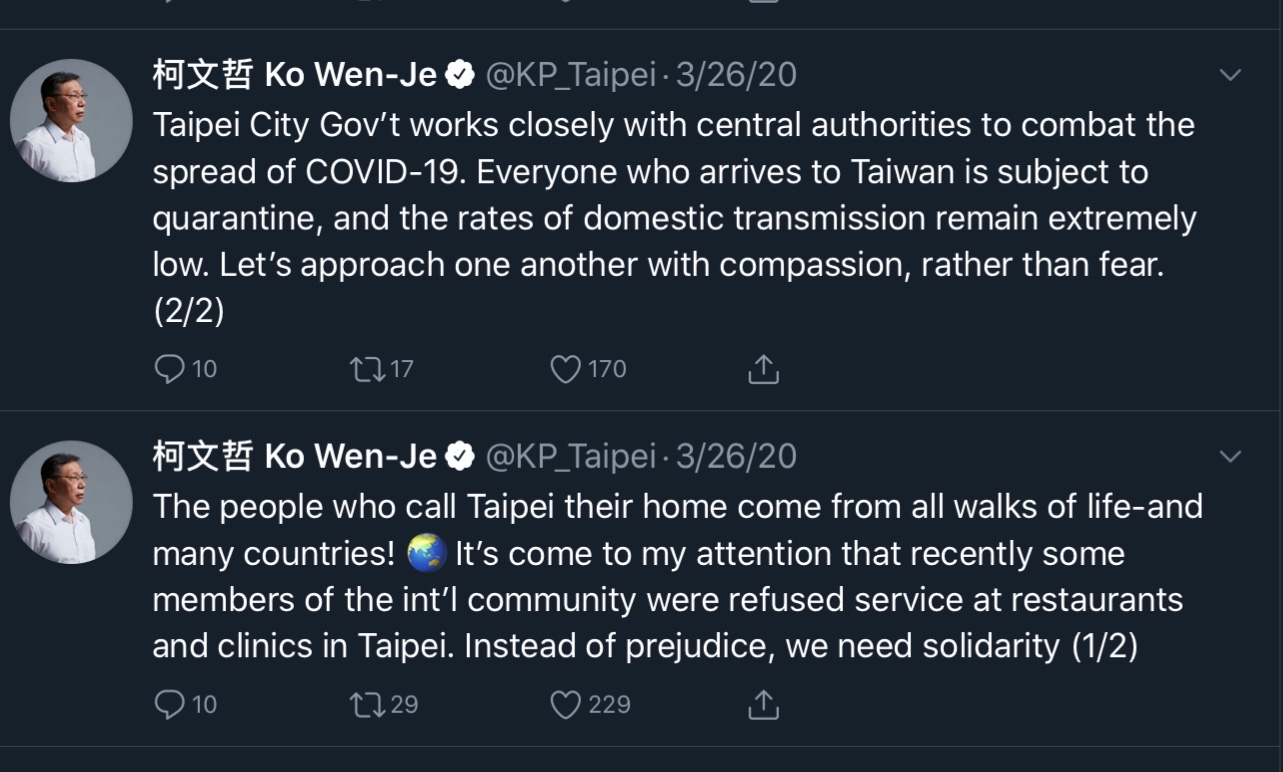
The Bird in Tainan has also published a long, pointless rant defending its banning of foreigners from the premises after receiving complaints on the anti-foreigner policy in the screenshot below (update: they have since changed their policy).
 |
| Point #5 says that foreigners are not allowed to enter this nightclub. |
Such policies are discriminatory, and acting on them is is illegal (a friend who is a lawyer pointed out to me that the policies themselves are not actionable but if they were caught turning away a foreigner simply for being a foreigner, that might be.)
They are also illogical, as most people who have entered Taiwan from abroad in recent weeks have been Taiwanese. Foreign visitors are not currently allowed in, and the foreign resident community isn't traveling much. We're not the ones pouring in bringing COVID19 with us. Most new cases have been Taiwanese returning from other countries, not foreigners. It makes no sense to target us.
Though I'm avoiding using the word "racist", there is a racial element to the discrimination. A Chinese-speaking person of Taiwanese heritage with a foreign passport who had recently been abroad would certainly not be checked. A foreign resident who has not left Taiwan in years probably would be, even if they had an ROC ID (a very small number do). Such policies absolutely target people based on their appearance.
This trend seemed to start in restaurants and bars, but is now making its way to hotel and airbnb rentals:

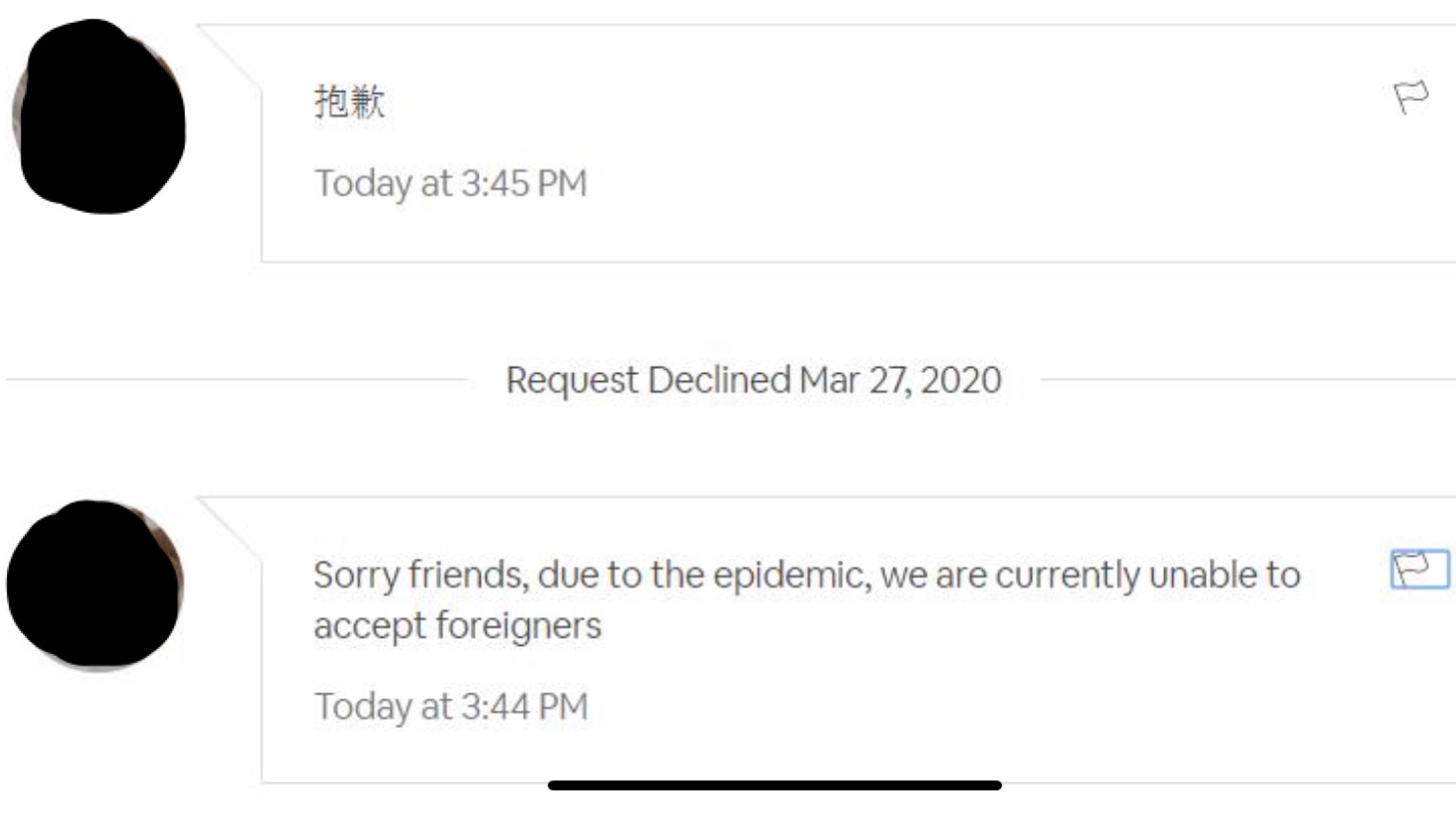
Here's the good news: since the foreign community began complaining about the discriminatory policies, some of the businesses implicated have either taken down the posts stating that foreigners would receive discriminatory treatment (I have screenshots but will not post them if the policy has been changed), or issued corrections and apologies (update: here's the most recent policy change and apology).
This is exactly the point of speaking up: directly calling out discrimination and requesting that policies be changed can work. The goal is not to hurt these businesses - we're all facing difficult times during this epidemic and nobody wants to make that worse for anyone else - but to spur positive change. It also serves to put other businesses on notice: if such policies become widespread, we will notice, we will respond, and we will tell our local friends. I don't want this to become a trend, so we have to put a stop to it now by making it clear that the foreign community will not tolerate it.
Before changing their policies, two of these establishments said they were "merely following government policy". If it had been one of them, I'd assume it was a face-saving excuse and nothing more. But when the second business said the same thing I started wondering: is some bad actor spreading disinformation? Is this an intentional campaign (not by the government) that has convinced a few business owners that these policies were necessary? Did some Youtuber blame foreigners for COVID19, causing this reaction?
Here's another restaurant doing the same thing: Indulge Bistro is requiring foreigners to provide entry stamps on passports to be served.
They don't seem to realize that, because foreign visitors are banned from entering Taiwan, almost every foreigner in Taiwan right now is a resident. We enter on our ARCs, not our passports, and most of us use e-gate. That means the vast majority of foreigners do not have entry stamps.
They do not require the same thing of Taiwanese - though they do say they won't serve you if you've traveled in the past 14 days, there is no stated requirement for Taiwanese to prove this - only foreigners. This is a form of discrimination.
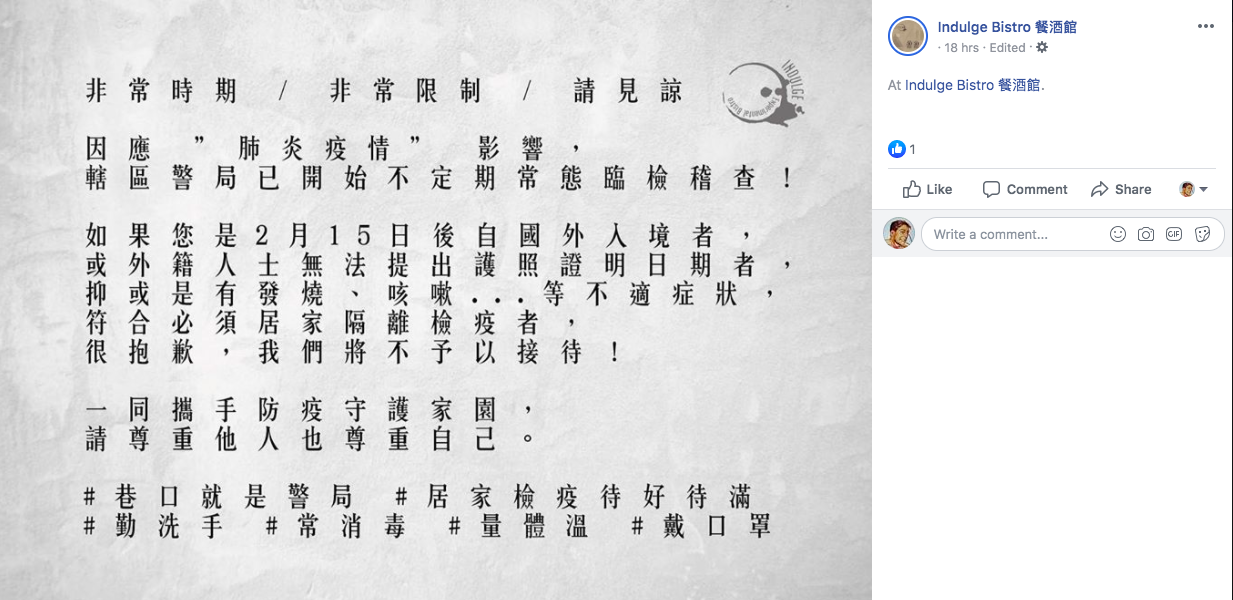
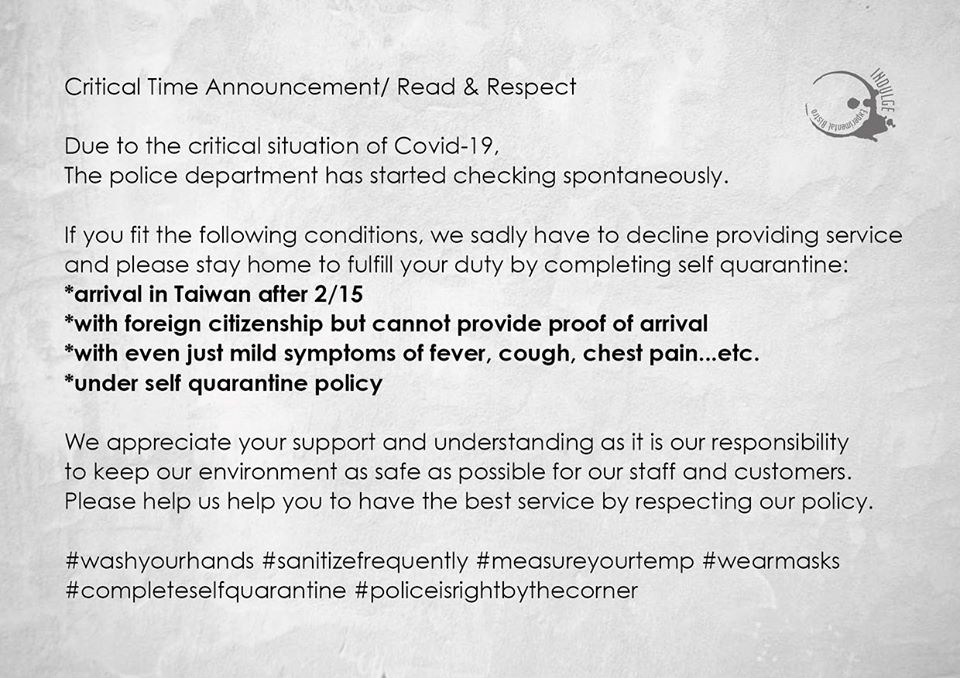
Some establishments have still not gotten the message despite complaints on their Facebook page for several days: Abrazo still has language up on their Facebook page that discriminates against foreigners.
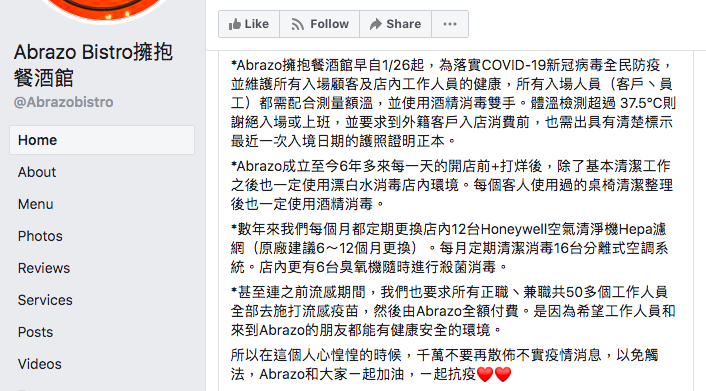
If they want to be safe and check travel histories, there are blanket policies they can create which cover everyone, not just foreigners. These would be more effective, as most people who have traveled in the past 14 days and are now in Taiwan are Taiwanese.
My gym requires everyone to sign in, leave contact information and record their temperature. This is quite fair, as the policy applies to everyone. This would be a better approach for these businesses, and I strongly urge them to change their policies immediately.
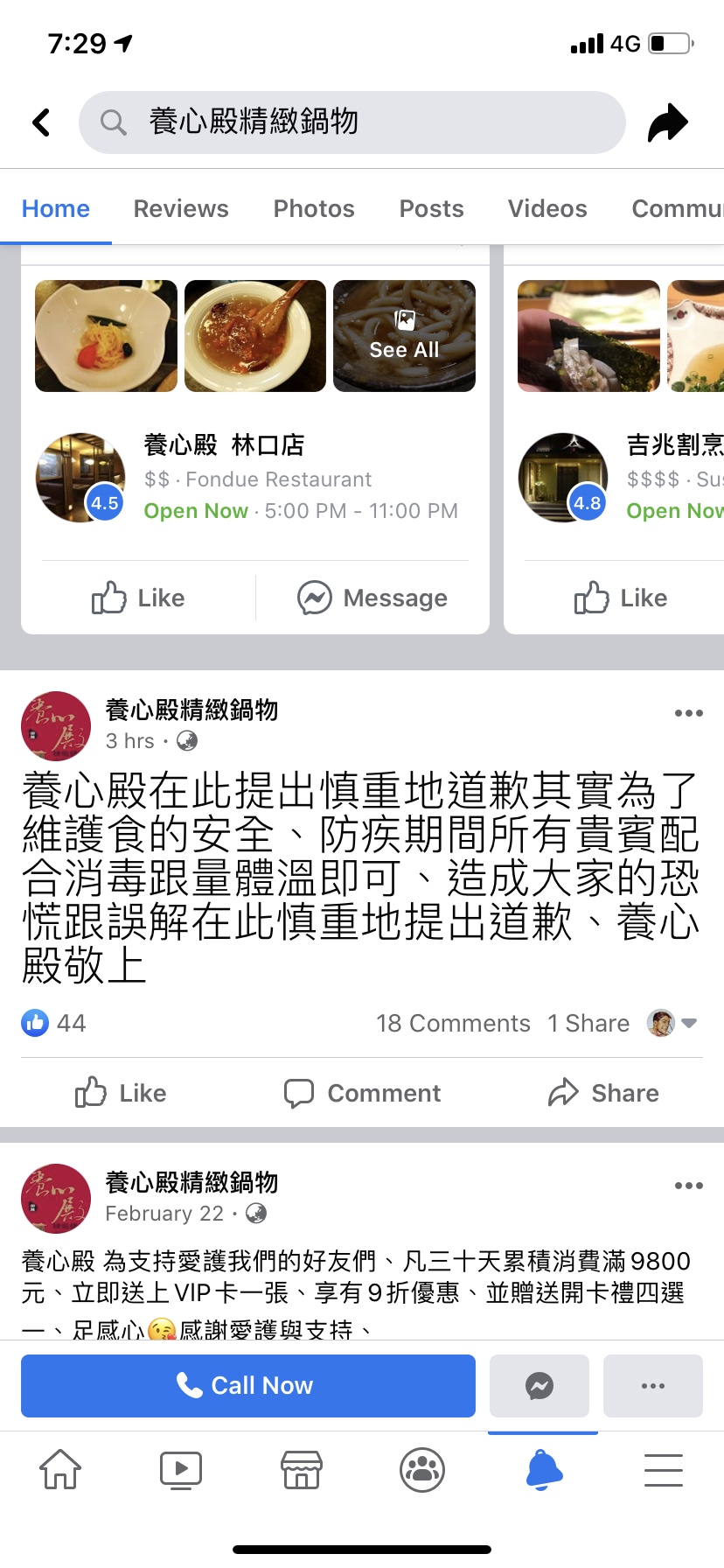 |
| This is one of the apologies in question. Clearly, calling out these establishments has a positive effect! |
Generally, I feel welcome in Taiwan and I do believe that most Taiwanese are happy to have a dedicated foreign community here. However, actions like this make us feel very unwelcome indeed. If Taiwan wants to retain its reputation as a friendly and international nation, this sort of attitude must stop.
So far, the businesses in question are mostly bars and nightclubs, although some other business have been implicated as well, including a hotel in Tainan rumored to have refused a room to a foreigner, saying "you should be in quarantine".
Another hotel in Guguan, a pharmacy and a popular dive shop in Taiwan have also been found announce discriminatory policies (e.g. only serving Taiwanese citizens, only selling to foreigners online, or allowing bookings by Taiwanese who've traveled recently, but not foreigners). However, after discussion with the various owners, these have generally been cleared up.
This pokes at a deeper fear that a lot of foreign residents in Taiwan have: what if Taiwan faces a medical triage situation? Again, I'm aware most Taiwanese would not treat me any differently than a Taiwanese patient, and I don't expect priority treatment. I'd be more likely to let those in greater need be treated first. But what if I am assigned doctor or nurse who decides on their own that caring for me is less important, because I am a foreigner?
It's unlikely, but not impossible. This attitude does exist in Taiwan, as these businesses have shown with their anti-foreigner sentiment.
Has a business in Taiwan discriminated against you, as a foreigner, due to COVID19? Do you have proof? (I can't name names with a story). Let me know - I'll add them to the list of places that do not welcome us and are hurting Taiwan's reputation as a country that values equal rights for all residents.
It is important that we call out these discriminatory practices, and more importantly, that we request changes. Although Indulge and Abrazo have yet to respond, and the complaints about hotels and airbnb bookings are just coming in. Ideally, the government would circulate a public service announcement that discriminating against foreigners who are not in quarantine and reside here legally is not okay and may even be illegal, to counter whatever fearmongering the people engaging in this practice are absorbing.

